A pandemic that spawned devastation also brought good: Star staffers share their stories
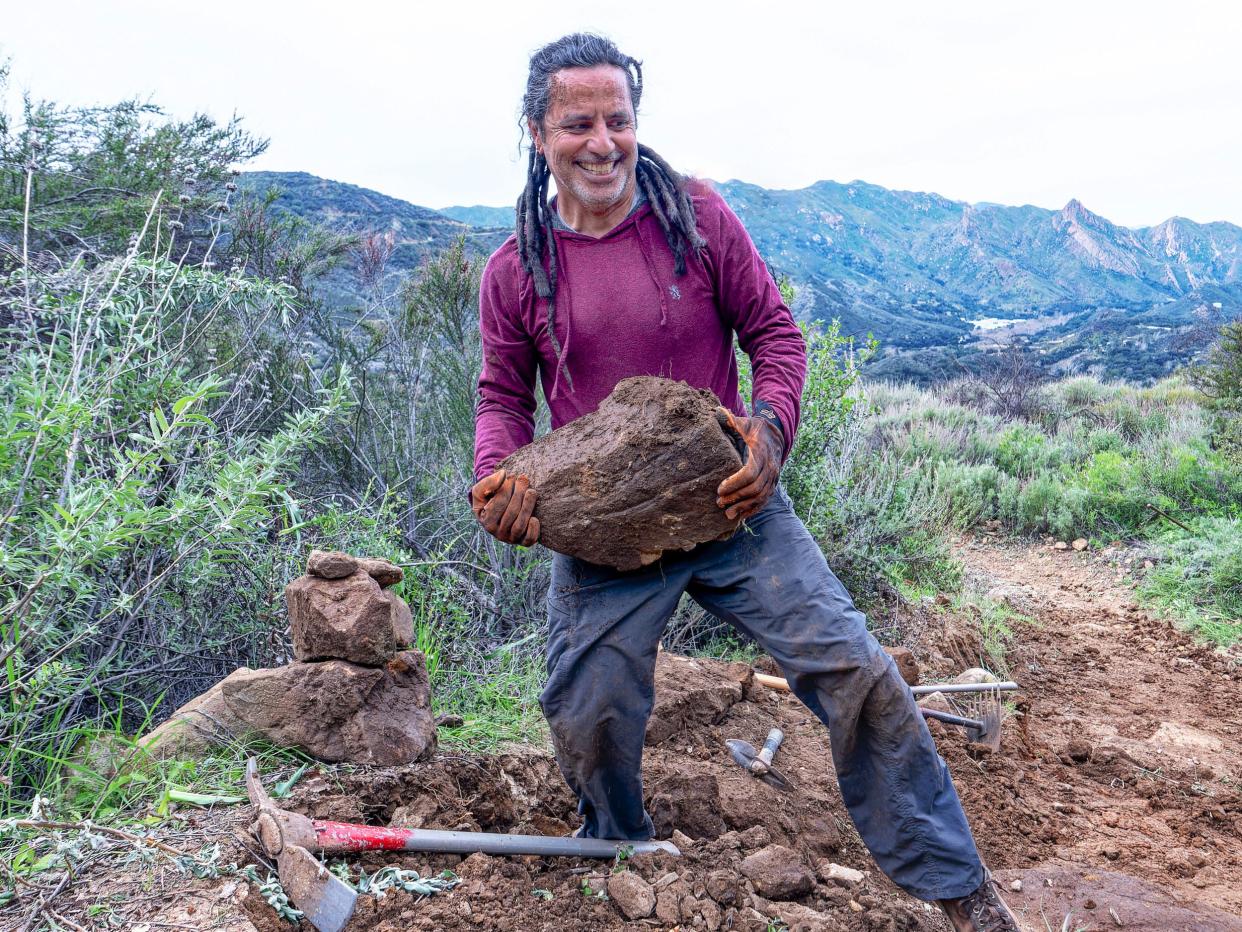
COVID-19 changed everything almost exactly three years ago.
Declared a local emergency on March 12, 2020, as Ventura County cases grew, the virus devastated businesses, flooded hospitals with patients and spawned isolation. County public health officials recorded 219,820 cases over the course of the pandemic with tens of thousands infections, maybe more, not reported with many of them detected in home tests. At least 1,682 deaths across the county have been linked to the virus.
But the devastation also brought glimpses of light that made some things a little better.
The pandemic forced people to find new ways to connect with family. And while COVID pushed people into pro- and anti-vaccine camps, it also brought people closer together, making spouses and partners more reliant on each other. The pandemic brought too a reshuffling of priorities that resulted in life changes big and small.
Ventura County Star staff members Tony Biasotti, Juan Carlo, Stacie Galang, Tom Kisken and Brian Varela shared some of the lasting changes the pandemic brought them. Here are their stories.
Celebrating first soccer games on Zoom
About a month after the world went on lockdown, my parents, three siblings and I started meeting Sundays on Zoom. Three years later, the tradition continues.
I took a screenshot in April 2020. There we all are in six little windows. On the top right, my niece, just 6, sits at a piano playing her latest lesson for us.

In the beginning, the online gatherings served as a weekly check-in, but along the way "family call" became a highlight of our week.
We learned about first soccer games and shared birthdays and other milestones, many of which we couldn't celebrate together because of the closures or the miles between us.
The Sunday video calls featured relatives from northern California, Hawaii and Germany. Even longtime, childhood friends have joined us as special guests.
When we began to travel again, my husband and I phoned in from a trip to Europe and my sister called from our cousin's home in Hawaii.
Sometimes, we would literally call from the road. My brother and his family might be headed out on a skiing adventure or my husband and I might be on our way to see his parents in the Central Valley.
While the calls started with an air of urgency and concern, they've evolved into fun weekly catchups. There's a lot of teasing.
The topics have ranged from the mundane, like what we're having for breakfast, to trickier subjects of history, politics and religion.
We've each missed from time to time. While we still call each other in between Sunday "family call," we all try to keep the commitment to gather once a week in front a computer or phone to chat.
No doubt we've shared a million more memories and thousands more laughs.
— Stacie N. Galang
Leaning on each other
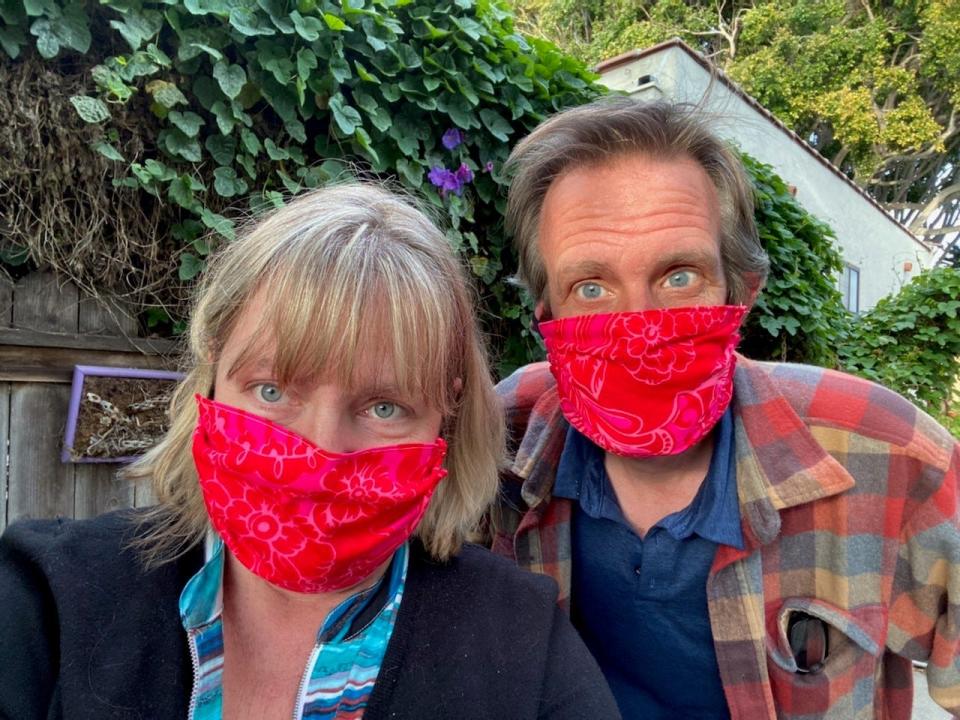
It felt like the two of us against the world.
In the first weeks of the COVID-19 pandemic, my wife, Lisa McKinnon, and I rarely left our neighborhood. We couldn’t visit family. We couldn’t go to restaurants. We couldn’t even look for birds in our favorite fenced-off ponds.
We were both newspaper reporters and worked from our small Ventura home, Lisa at the kitchen table, me at a sewing table converted into a desk. We listened to each other’s phone interviews about restaurant closures, curbside deliveries, masking orders and outbreaks in nursing homes.
We leaned on each other at the same time as we gave each other space. I washed socks and jeans in the bathtub. Lisa dried them on a rack in the backyard. We took walks in our small neighborhood, talking about frustrations, fears and the uncertainty that was suddenly reality.
Two months in, Lisa’s mother was diagnosed with pancreatic cancer. She went through a surgery we were told she might not survive. She did but was given only months to live. Suddenly, we were facing a crisis that, for us, was bigger than the pandemic.
Lisa moved to her mother’s home and became her caregiver. I came on the weekends, picking up supplies from the pharmacy, making breakfast in hopes my mother-in-law was hungry. On rare occasions, she was.
Judy McKinnon died at 3:11 a.m. on Nov. 8, 2020. She was 82. After her last breath, Lisa and I sat together talking in a dark living room waiting for morticians to arrive. When the sun came up, we took a ride to the beach and saw a dragonfly. We decided it was Judy.
Since then, we’ve made it through more – career change, bout with COVID and more uncertainty. We’ve always been a team. The pandemic and Judy pushed us closer together. We rely on each other for everything. We help each other.
It is still the two of us against the world.
— Tom Kisken
Stranger in a strange land
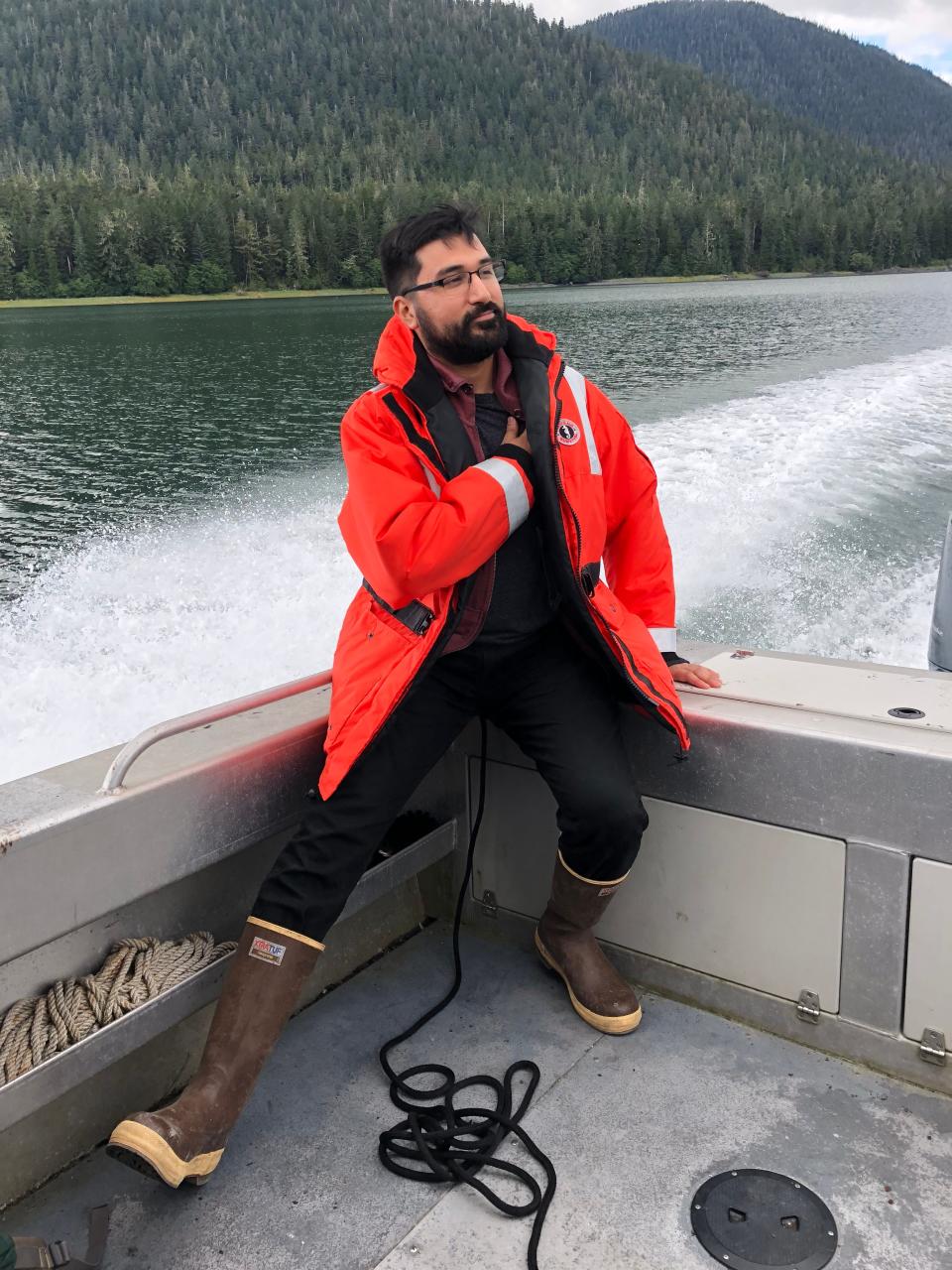
This time two years ago, I was in Alaska.
The weather was similar to what we see in Ventura County these days. When it wasn’t raining, there were puddles to step in beneath snow-capped mountains.
I fled California for Petersburg, Alaska, in the summer of 2018. I had just graduated college. My professors warned me to take a job out of state if I wanted to immediately start a career in journalism, so I did.
Within several weeks of emailing the publisher of the Petersburg Pilot newspaper, I was offered a job. My diploma hadn’t even arrived in the mail yet.
I said goodbye to family and friends and vowed to come back some day.
Three years passed.
During that time, I was the weekly newspaper's only reporter. I covered everything from city government and the local school district to salmon fisheries and moose season. I built up a quiet life of solitude in picturesque surroundings.
But when the pandemic took hold, the city became claustrophobic. It was difficult to travel out of Petersburg, on an island in southeast Alaska. Plus, COVID-19 coverage quickly became tedious and added to my busy workload.
It was time to make the move back to California.
That’s when I noticed the Ventura County Star was hiring. Following a conversation with my sister, I decided to apply in early 2021. I didn't get the job, but another position soon opened. The beat included the city of Oxnard, my hometown. The Star's news director encouraged me to apply again.
I got the job.
The pandemic didn't affect my life in some of the terrible ways many people experienced. However, the disruption spurred me to take the steps to come home.
— Brian Varela
Going all in with Texas Hold 'em
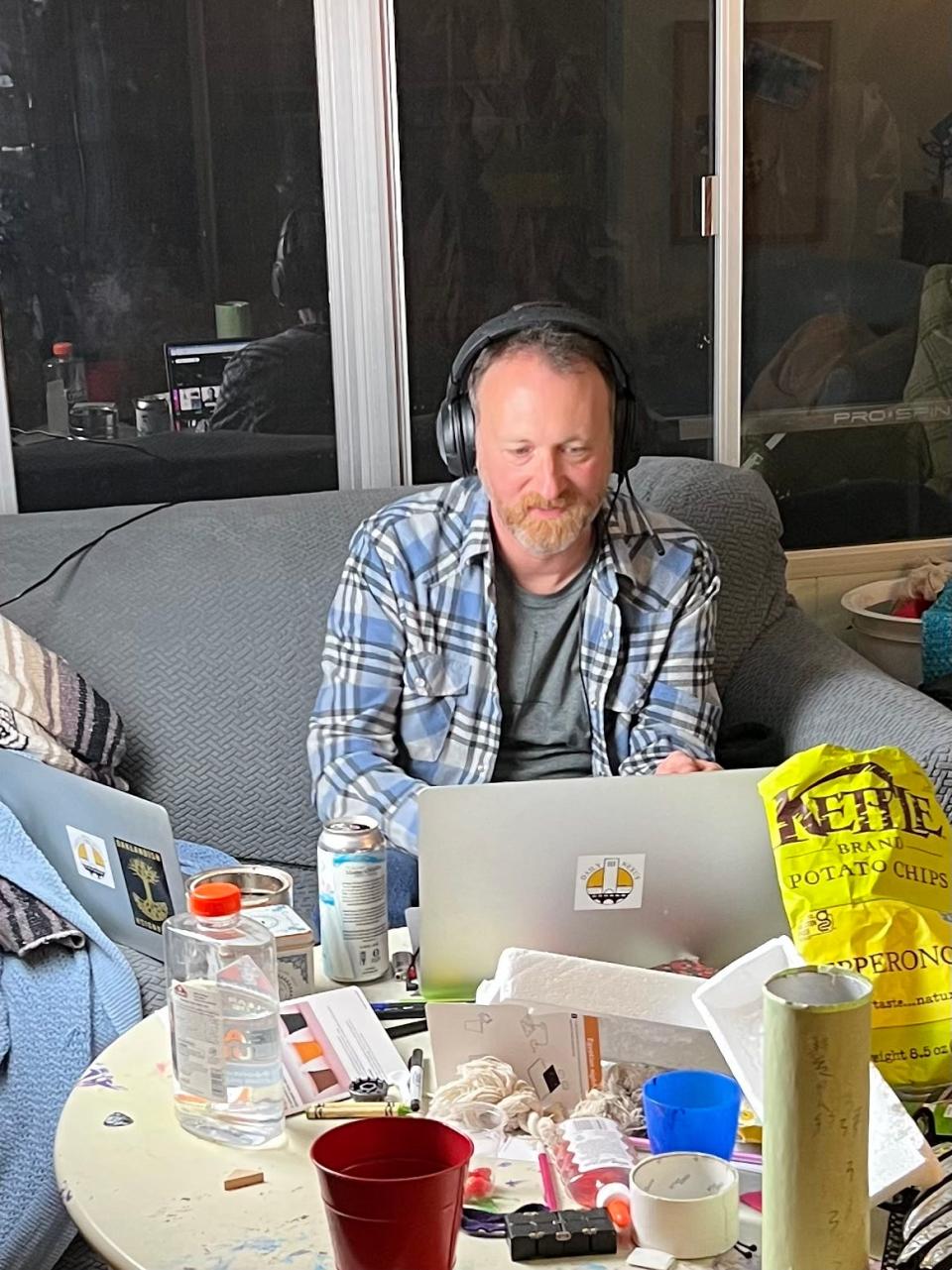
I don’t wear a mask anymore. I only work from home about half the time. I’ve stopped counting heads in crowded spaces and thinking about what’s in the air everyone is expelling. (Except on flights; I still do that on planes.) I go through what feels like a normal amount of hand sanitizer.
The pandemic habit that’s stuck with me into 2023 doesn’t have much to do with the pandemic itself. I’m in a group chat with old college friends, and in April 2020, one of them proposed we treat our cabin fever by playing poker online while hanging out on a Zoom call. This turned into an every-Saturday-night custom for the first two years, and we’re still playing about twice a month.
When it started, I was close friends with maybe a third of the dozen or so regulars. The rest were college housemates of those friends, people I knew but hadn’t seen much in 20 years and probably would never have reconnected with, if not for the poker game.
Now they’re some of the closest friends I have. We’ve sat down at least 100 Saturday nights to have a beer or three, play a few hours of extremely unserious and low-stakes Texas Hold ‘em, complain about our kids and the world in general, and share our daily triumphs and tragedies.
In three years, two of the regulars have had babies. One lost a parent to cancer. People have changed jobs, moved across the country or around the world, and fled New York City on someone’s private jet during the terrifying early days of the pandemic.
I’m not sure how reliable the record-keeping is on the website we use, but it says I’m down a whopping $257 since we started. It’s a small price to pay for the only good habit I’ve gained during the pandemic.
— Tony Biasotti
A reprieve from humans
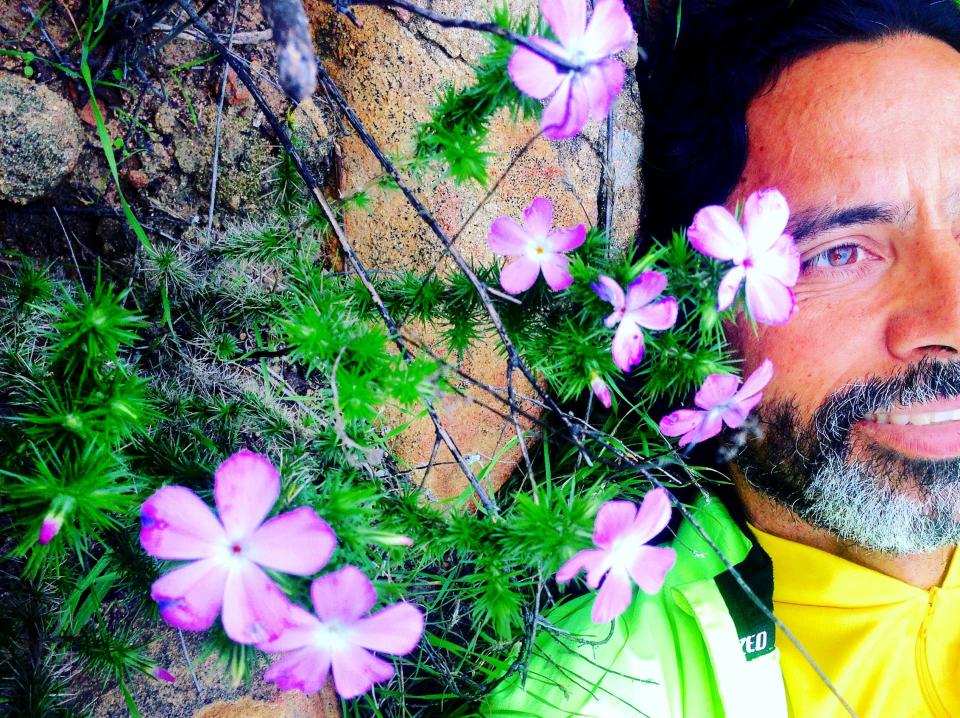
They say California’s landscape is shaped by catastrophic events with the topography remaining the same for years until a massive storm reroutes rivers or an earthquake cracks the ground. The COVID-19 pandemic was one of those catastrophes, but while it took a heavy toll on humans, its effect on nature, and my life, was the opposite.
In the lockdown phase of the pandemic, the trails in the Santa Monica Mountains were closed for several weeks. Traffic eased as people stayed home during the lockdowns. It was amazing how quickly the air became spectacularly fresh and the sky once again blue. The mountains surrounding the Los Angeles basin reappeared crisp and distinct.
One of the few places that did not close was the Sapwi BMX bike park in Thousand Oaks, so while my normal volunteer activity as a member of the mountain bike unit in the Santa Monica Mountains was temporarily curtailed, I decided to expand my repertoire by learning BMX.
As I tore up the track day after day trying to master the art of leaving the ground on a bike after years of attempting to remain firmly attached to it, I started wondering about who cleaned up the track after my amateur efforts. That’s when I found out about Dirt Church, the volunteers who rebuild the berms and jumps. One thing led to another and I ended up on both the board of directors of CORBA, Sapwi’s partner organization, and on the Sapwi Committee.
When the trails finally reopened and people were able to resume biking and hiking, there were more surprises. The amount of plant growth that had occurred in just a matter of months was startling.
Wildlife that had disappeared after the Woolsey Fire had finally been given a reprieve from humans and a chance to recover. Rangers reported the mountain lions they were tracking had come in closer to trails during the closure.
There was much work to be done to restore the trails, and I wondered if they needed help. My inquiries led me to the Santa Monica Mountains Trails Council, so I began to volunteer with dedicated people who consider digging drainage ditches, rolling giant rocks around and trimming overly exuberant foliage to be fun. I took classes and put in training hours to become a trail leader.
With new hobbies, new skills, new friends and a new mission, I, like the landscape after a catastrophe, have been forever changed.
— Juan Carlo
Your turn
What’s your story? If you’re interested in sharing a lasting change during the pandemic that bettered your life, send it to tkisken@vcstar.com. Please keep your entries to no more than 300 words and include a phone number in case we need to reach you.
SUPPORT LOCAL JOURNALISM: To see more stories like this, subscribe here.
This article originally appeared on Ventura County Star: We share our stories of the good things produced by the pandemic

